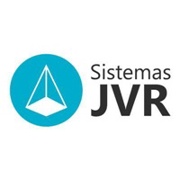
There are 1 Companies in Venezuela
that provide Hosting and Cloud Services!
Before the crisis happened, Venezuela was one of the most competitive countries in IT in the region, leading even several positions on the regional market. Skilled professionals made the country a great BPO destination for foreign companies, and Data Mining was at its highest in Latin America. Although Venezuela still faces some challenges, it has the chance to emerge as one of the region’s leaders in information technology.
Discover Top IT Companies in Venezuela specialized in Hosting and Cloud and other related services. Find the best IT service providers for your projects.
Entrepreneurs often struggle to differentiate between cloud and hosted services, which may seem similar but differ in processes. Understanding these differences can help choose the right for your business. Pick the right home for your website involves considering technical aspects, reliability, cost, and customer support and other factors.
There are more than 330,000 web hosting providers all around the world, and this number is expected to grow as the Internet expands. Even with the fierce competition, new providers continue to enter the market. At the same time, data reveals that approximately 60% of all corporate data is now stored in the cloud. It has also witnessed a 10% increase compared to the previous year, 2021.
Handpicked companies • No obligation to hire • 100% risk-free
Explore Top Hosting and Cloud Companies in Venezuela
Sistemas JVR is an IT Solutions company with over 3 years of experience in the Venezuelan market focused on providing technical support and comprehens...
Filter Hosting and Cloud Companies in Venezuela by Cities
Find the right tech company near you or from a specific city. Some of the best companies might be located in smaller cities.
Find more Hosting and Cloud companies around the world
TechBehemoths is the world's most advanced and user-friendly platform to match IT Companies with real clients without hustle.
The Venezuelan IT Industry: Insightful Data & Statistics
Venezuela is probably not the best example of a well-developed IT hub with lots of web agencies and IT firms, but it was not always like that. Since 2019 the country started to confront the political crisis which automatically transformed into an economic, social, and migration crisis. The political transformations were not accepted by local society nor by the western international community, the oil price went low down to historical records, and the local currency - Venezuelan Bolivar, also depreciated drastically compared to the USD.
And if 2019 wasn’t enough, in 2020 the pandemic hit the country and caused heavy casualties to the country that struggles to rebuild its economy and society.
Why You Should Work With IT Companies From Venezuela
But before all this happened, Venezuela was one of the most competitive countries in IT in the region, leading even several positions on the regional market. Skilled professionals made the country a great BPO destination for foreign companies and Data Mining was at its highest in Latin America.
Right now, Venezuelan IT companies are struggling to attract new customers from the region, and support the national economy by providing a decent level of living standards to its workers. Even compared to other countries, the average hourly rate of a web project is lower: ~5,26 USD. And the yearly average wage inside the industry is $11,113 according to PayScale data.
At the same time, the quality and performance of web agencies from Venezuela remains average, and this is just one more reason why to choose Venezuelan-based agencies for outsourcing, or even for a business of your own.
What to Pay Attention to When Working With Venezuelan Agencies
The political transformation and institutional changes in Venezuela, made the country unstable and presents certain risks for potential investors and clients, but as well to IT companies that still selected the country as their operational center. High taxes, nationalization of private property, international restrictions, and low economic growth are only a few of the challenges the IT sector in Venezuela faces. All these lead to poverty conditions and make companies rethink their strategy or even to move out of the country.
However, Venezuelan IT companies are unattractive just because the country is changing, not in the best way. And also the skilled workers’ shortage, that got even worse - more than 1.3 million people fled the country in 2019-2020.
How Reliable Are Venezuelan IT Companies
Regarding the trust level of Venezuelan IT companies - it’s lower than ever, but still, they manage to survive mainly due to the few remaining BPO centers in the country. Other companies based in the neighborhood are a way better alternative due to economic stability and well-developed IT industry.
All in all, right now Venezuela faces an unprecedented crisis, but it still has the chance to emerge as one of the region’s leaders in information technology. Like we’ve seen in other cases, the IT market is unpredictable and can power up an entire country’s economy and transforming it into a digital leader out of nowhere. But it all depends on the moves the government will take further.
What is Hosting and Cloud and what are its benefits for your projects?
Entrepreneurs often struggle to differentiate between cloud and hosted services, which may seem similar but differ in processes. Understanding these differences can help choose the right for your business. Pick the right home for your website involves considering technical aspects, reliability, cost, and customer support and other factors.
There are more than 330,000 web hosting providers all around the world, and this number is expected to grow as the Internet expands. Even with the fierce competition, new providers continue to enter the market.
At the same time, data reveals that approximately 60% of all corporate data is now stored in the cloud. It has also witnessed a 10% increase compared to the previous year, 2021.
Cloud Services
Cloud services are computing services provided by third-party hosts through the internet and on-demand. They allow customers to access and utilize remote computing resources effortlessly. There are three main categories of cloud: Software as a service (SaaS), Platform as a service (PaaS), Infrastructure as a service (IaaS).
Benefits of Using Cloud-Based Services
Cloud services offer several advantages that are not available with hosted solutions:
-
IT Optimization: With cloud services, the provider is responsible for building and maintaining all the hardware, so your IT department doesn't have to manage servers or install and update software on individual computers. Additionally, the provider is responsible for ensuring security and resolving any problems that might come up.
-
Budget-friendly approach: Cloud services offer a cost-efficient approach where you only pay for what you use. There is no need to invest in hardware or purchase software licences that may end up being unused by your team.
-
Business system integration: To integrate various third-party cloud solutions, you can streamline workflows and enhance team collaboration and productivity. For instance integrating your cloud communications platform with a CRM. Doing so ensures employees have access to customer information before they answer incoming calls and automatically logs all calls into the CRM.
-
Increase agility and scalability: Cloud services let you make changes in just a few clicks, whether you need to shift workflows, add new features and functionality, or change the number of users.
-
Support AI, predictive analytics, and IoT: With your data in the cloud, you can easily apply these advanced technologies to improve efficiency, gain new insights, and future-proof your business.
-
Support remote workforces: The workforce can access cloud services anytime, anywhere, using any device, with just an internet connection and login credentials.
Hosting Services
Hosted services, much like cloud-based solutions, are managed by a third-party provider and accessed through the internet. With hosted solutions, the provider owns and maintains physical servers in a private location rather than relying on a public cloud. This allows the service to be accessed online without the need for installing hardware or software. Users typically access it through a virtual private network or remote desktop.
Benefits of Hosting Services
Hosted services offer some of the same advantages as cloud solution, including:
-
Remote access and the ability to integrate with certain other cloud solutions. Because the software and hardware are maintained by the provider, there's also less for IT to manage than with traditional computing solutions (but typically more than with cloud solutions).
-
Offers greater customization options compared to cloud services, depending on the setup and service agreement.
-
Provide more control over security protocols, which is particularly beneficial for companies operating in highly regulated industries.
To Sum Up
Cloud services are a more cost-effective option compared to hosting services. They are easier to set up, manage, and maintain. Although hosting services offer more control, they require additional IT work and often come at a higher price. However, it's important to analyze your specific business requirements before deciding on a hosting type. At the moment Techehemoths has almost 800 Hosting & Cloud service providers.
Take a look at their profiles and feel free to contact them, the smart filters will also help you, Moreover, you can submit your project and our team will hand-pick and send you the best matching service providers, and you will get free quotes in about 1-hour. Also, if you want to learn more about cloud and hosting services, check out our blog for additional information.
